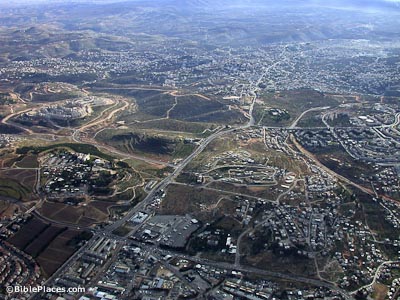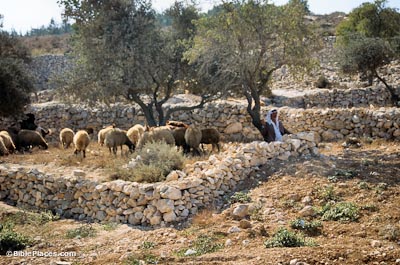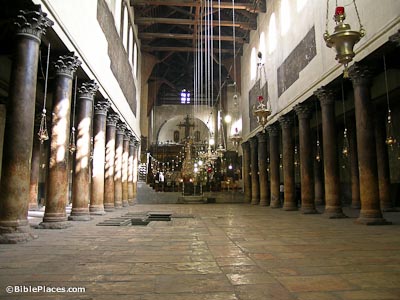
Bible Verse and Prayer for Today;
For ye have not received the spirit of bondage again to fear; but ye have received the Spirit of adoption, whereby we cry, Abba, Father.
Romans 8:15
Prayer
Lord . Yes we did not Receive the evil spirit of Bondage and Fear . But Lord the Problem is that the Majority of Christians did not Receive the Baptism of the Holy Spirit as Yet , this is why the spirit of Bondage and Fear are present in Christians lives. Please Help us to Get Sin Free and Holy to become Fearless and Receive the Baptism of the Holy Spirit . for the Baptism of the Holy Spirit only Takes place when we are SinLess , Fearless and Holy . Please help everyone that Prays this prayer with us to get to this point soonest , we Pray in Jesus name , Amen and Amen
Prayer Tips
Prayers in the Old Testament
- A very powerful hidden prayer in the Bible
Jabez prayer
1Ch 4:9 and Jabez was more honorable than his brethren: and his mother
called his name Jabez, saying, because I bare him with sorrow.
10 And Jabez called on the God of Israel, saying, Oh that thou would
bless me indeed, and enlarge my coast, and that thine hand
might be with me, and that thou would keep me from evil,
that it may not grieve me! And God granted him that which he
requested. - Ask for Gods blessings in abundance.
- Ask God to enlarge your territory.
- Ask God to protect and be with you always, in all you do.
- Ask God to keep you away from evil.
- Thank GOD for granting your prayer requests.
- A request also a prayer.
Bybel Vers en Gebed vir Vandag
Want julle het nie ontvang die gees van slawerny om weer te vrees nie, maar julle het ontvang die Gees van aanneming, waardeur ons roep: Abba, Vader!
Romeine 8:15
Gebed
Here. Ja, ons het nie die bose gees van slawerny en vrees ontvang nie. Maar Here, die probleem is dat die meerderheid Christene nog nie die doop van die Heilige Gees ontvang het nie, daarom is die gees van slawerny en vrees teenwoordig in Christene se lewens. Help ons asseblief om sondevry en heilig te word, vreesloos te word en die doop van die Heilige Gees te ontvang. Want die doop van die Heilige Gees vind slegs plaas wanneer ons sondeloos, vreesloos en heilig is. Help asseblief almal wat hierdie gebed saam met ons bid om so gou as moontlik tot hierdie punt te kom. Ons bid in Jesus se naam, Amen en Amen.
Gebed Wenke
Gebede in die Ou Testament
‘n Baie kragtige versteekte gebed in die Bybel
Jabes se gebed
1Kron 4:9 En Jabes was meer geëerd as sy broers; en sy moeder het hom Jabes genoem en gesê: Ek het met smart gebaar.
10 En Jabes het die God van Israel aangeroep en gesê: As U my ryklik seën en my grondgebied vermeerder en u hand met my sal wees en U die onheil afweer, sodat my geen smart tref nie! En God het laat kom wat hy begeer het.
- Vra God vir seëninge in oorvloed.
- Vra God om jou grondgebied te vergroot.
- Vra God om jou te beskerm en saam jou te wees in alles wat jy doen.
- Vra God om jou te weerhou van onheil.
- Dank God omdat Hy jou gebedsversoeke verhoor.
- ‘n Versoek asook ‘n gebed.

Bible Teaching of the Day
Concern over the wayward spiritual condition of the World!
In Galatians 4:8–20, the apostle Paul expresses deep concern over the wayward spiritual condition of the Galatians. The church had come under the influence of Judaizer’s who preached a false gospel combining God’s grace with human works. As a result, the Galatians had slid back into religious legalism. In a lengthy argument reminding them that righteousness is based on faith in Christ’s work of redemption and not our own works (Galatians 3:1—4:31), Paul conveys the intensity of his love for the Galatians. These converts were the fruit of his evangelistic efforts. He had labored for their salvation, and now he feels like a mother going through labor pains again: “My dear children, for whom I am again in the pains of childbirth until Christ is formed in you” (Galatians 4:19).
God’s purpose for every believer is to be transformed into the image and character of Jesus Christ: “For God knew his people in advance, and he chose them to become like his Son, so that his Son would be the firstborn among many brothers and sisters” (Romans 8:29, NLT; see also Ephesians 1:4–11). Paul was eager to see his beloved spiritual children advancing in that purpose, “growing in every way more and more like Christ, who is the head of his body, the church” (Ephesians 4:15, NLT). Paul would never cease caring and travailing in anguish until the life of Christ was formed in them.
The word translated as “formed” (morphoomai in Greek) in Galatians 4:19 means “to be or become developed into a distinctive entity,” as in the formation of an embryo in the womb. Paul’s illustration stresses their need to begin growing up spiritually. He ached to see the reality of Jesus Christ living in the Galatians.
At salvation, the life of Christ indwells believers. Jesus said, “I am in them” (John 17:23, NLT), and Paul affirmed, “I have been crucified with Christ and I no longer live, but Christ lives in me” (Galatians 2:20). But the transformation “until Christ is formed in you” is a life-long process (1 John 3:2; Philippians 3:21; 2 Peter 1:4). Paul told the Colossians, “Put on your new nature, and be renewed as you learn to know your Creator and become like him” (Colossians 3:10). The process of spiritual growth was being hindered in the Galatians through outward religious performance instead of true inward change (see Colossians 2:20–23). Believers don’t become righteous through their own efforts, observing rules and regulations, but by the sanctifying work of the Holy Spirit: “And the Lord—who is the Spirit—makes us more and more like him as we are changed into his glorious image” (2 Corinthians 3:18, NLT; see also Ephesians 4:23; 1 Corinthians 6:11; 2 Corinthians 1:21–22; Titus 3:4–7).
Paul told the Philippians that nothing is more important in the Christian life than knowing Christ and becoming like Him. We accomplish this not by obeying the law but through faith in Jesus: “Yes, everything else is worthless when compared with the infinite value of knowing Christ Jesus my Lord. For his sake I have discarded everything else, counting it all as garbage, so that I could gain Christ and become one with him. I no longer count on my own righteousness through obeying the law; rather, I become righteous through faith in Christ. For God’s way of making us right with himself depends on faith” (Philippians 3:8–9, NLT).
Christ is formed in you when there is nothing left to see but Him living in you (Romans 8:9–11; Galatians 3:27). Christ is formed in you when He is your everything and all you need (Romans 7:4; 1 Corinthians 1:30; 2 Corinthians 12:9; Ephesians 4:15; Philippians 4:19; 2 Peter 1:3).
Bybel Lering vir die Dag
Diepe kommer oor die eiesinnige geestelike toestand van die Wereld!
In Galasiërs 4:8–20 spreek die apostel Paulus sy diepe kommer uit oor die eiesinnige geestelike toestand van die Galasiërs. Die kerk het onder die invloed van Judaïseerders gekom wat ‘n valse evangelie verkondig het wat God se genade met menslike werke kombineer. Gevolglik het die Galasiërs teruggeval in godsdienstige legalisme. In ‘n lang argument wat hulle daaraan herinner dat geregtigheid gebaseer is op geloof in Christus se verlossingswerk en nie ons eie werke nie (Galasiërs 3:1–4:31), dra Paulus die intensiteit van sy liefde vir die Galasiërs oor. Hierdie bekeerlinge was die vrug van sy evangelisasiepogings. Hy het vir hulle redding geswoeg, en nou voel hy soos ‘n moeder wat weer deur barensnood gaan: “My liewe kinders, vir wie ek weer in geboortepyne is totdat Christus in julle gestalte kry” (Galasiërs 4:19).
God se doel vir elke gelowige is om na die beeld en karakter van Jesus Christus verander te word: “Want God het sy mense vooruit geken en hulle uitverkies om soos sy Seun te word, sodat sy Seun die eersgeborene sou wees onder baie broers en susters” (Romeine 8:29, NLT; sien ook Efesiërs 1:4–11). Paulus was gretig om te sien hoe sy geliefde geestelike kinders in daardie doel vorder, “in elke opsig al hoe meer soos Christus groei, wat die hoof is van sy liggaam, die kerk” (Efesiërs 4:15, NLT). Paulus sou nooit ophou omgee en in angs ly totdat die lewe van Christus in hulle gevorm is nie.
Die woord wat in Galasiërs 4:19 as “gevorm” (morphoomai in Grieks) vertaal word, beteken “om ontwikkel te word of te word tot ‘n onderskeidende entiteit”, soos in die vorming van ‘n embrio in die baarmoeder. Paulus se illustrasie beklemtoon hul behoefte om geestelik te begin grootword. Hy het gesmag om die werklikheid van Jesus Christus wat in die Galasiërs leef, te sien.
By verlossing woon die lewe van Christus in gelowiges. Jesus het gesê: “Ek is in hulle” (Johannes 17:23), en Paulus het bevestig: “Ek is met Christus gekruisig, en ek leef nie meer nie, maar Christus leef in my” (Galasiërs 2:20). Maar die transformasie “totdat Christus in julle gestalte kry” is ’n lewenslange proses (1 Johannes 3:2; Filippense 3:21; 2 Petrus 1:4). Paulus het vir die Kolossense gesê: “Beklee julle met julle nuwe natuur en word vernuwe deurdat julle julle Skepper leer ken en soos Hy word” (Kolossense 3:10). Die proses van geestelike groei is in die Galasiërs belemmer deur uiterlike godsdienstige prestasie in plaas van ware innerlike verandering (sien Kolossense 2:20–23). Gelowiges word nie regverdig deur hul eie pogings, die nakoming van reëls en regulasies nie, maar deur die heiligmakende werk van die Heilige Gees: “En die Here, wat die Gees is, maak ons al hoe meer soos Hy, terwyl ons verander word na sy heerlike beeld” (2 Korintiërs 3:18; sien ook Efesiërs 4:23; 1 Korintiërs 6:11; 2 Korintiërs 1:21–22; Titus 3:4–7).
Paulus het vir die Filippense gesê dat niks belangriker in die Christelike lewe is as om Christus te ken en soos Hy te word nie. Ons bereik dit nie deur die wet te gehoorsaam nie, maar deur geloof in Jesus: “Ja, al die ander dinge is waardeloos teenoor die oneindige waarde van die kennis van Christus Jesus, my Here. Ter wille van Hom het ek alles verwerp en as drek beskou, sodat ek Christus as wins kan verkry en een met Hom kan word. Ek vertrou nie meer op my eie geregtigheid deur die wet te gehoorsaam nie, maar op my geregtigheid deur die geloof in Christus. Want God se manier om ons met Homself vry te maak, hang af van die geloof” (Filippense 3:8–9, NLT).
Christus word in jou gestalte gegee wanneer daar niks meer oor is om te sien nie, behalwe Hy wat in jou woon (Romeine 8:9–11; Galasiërs 3:27). Christus word in jou gestalte gegee wanneer Hy jou alles en alles is wat jy nodig het (Romeine 7:4; 1 Korintiërs 1:30; 2 Korintiërs 12:9; Efesiërs 4:15; Filippense 4:19; 2 Petrus 1:3).

Today’s Devotional
“BELIEVERS, CONFESS!”
Like John the Baptist, I am not worthy to tie Jesus’ shoelaces. (Mark 1:7) Like Paul, I am certainly the greatest sinner of all. But despite that, I believe that the Lord has laid the following on my heart. The Lord says: “CONFESS”
The Lord gave me the following verse: “If we confess our sins, He is faithful and just to forgive us our sins and to cleanse us from all unrighteousness. If we say that we have not sinned, we make Him a liar and His word is not in us.” (1 John 1:9-10)
But then we are believers. What sin should we confess then?
We must confess our unbelief. We believe that God the Father sent His Son Jesus Christ to save us from sin. But we do not believe that the Lord can save the president, our neighbor, or the drunkard on the corner. And when circumstances are pressing and we are exposed to all kinds of tribulations, we often do not believe that the Lord will bring us through it. Can’t the same God who can put food on the table also heal our country?
We must confess our fear. Fear is a direct enemy of faith and yet many believers say “I am afraid” or “I fear.” We fear what the government will do. We fear a coming recession. We fear persecution. But doesn’t the scripture say that God has not given us a spirit of fear, but of power and of love and of self-control. (2 Timothy 1:7)
We must confess our lack of love. Yes, God calls us to love, but there is always that one who is difficult to love, that one we just don’t want to love. Sometimes there are even people who hate us. But doesn’t the Word say that he who loves God must also love his brother? (1 John 4:21)
We must confess our inability to forgive. The Word is clear. “As Christ forgave you, so do you also.” (Colossians 3:13)
We must confess our unwillingness to be servants. In Galatians 5:13 we are commanded to be servants or to serve. Paul also says in 1 Corinthians 9:19 that he made himself a servant to all, that he might win as many of them as possible.
We must confess our unwillingness to pray. Earlier this week someone said that they pray every Wednesday but that it is now becoming too much for him. However, the Word asks that we be a praying generation, praying always. (1 Thessalonians 5:17)
We must confess our unwillingness to study the Word before God. Is not the Word given by God and profitable for doctrine, for reproof, for correction, for instruction in righteousness? (2 Timothy 3:16)
We must also confess that we often glorify ourselves rather than God. Too many believers still sit on the throne from where they call the Lord and rule like their slave. Unfortunately, there are still many who are not willing to relinquish the throne and put God in control. Remember: “God resists the proud, but gives grace to the humble.” (James 4:6)
Vandag se Bemoediging
“GELOWIGES, BELY!”
Soos Johannes die doper is ek nie waardig om Jesus se veters vas te maak nie. (Markus 1:7) Soos Paulus is ek sekerlik die grootste sondaar bo almal. Maar ten spytte daarvan glo ek dat die Here die volgende op my hart gelê. Die Here sê: “BELY”
Die Here het die volgende vers aan my gegee: “As ons ons sondes bely, Hy is getrou en regverdig om ons die sondes te vergewe en ons van alle ongeregtigheid te reinig. As ons sê dat ons nie gesondig het nie, dan maak ons Hom tot ‘n leuenaar en is sy woord nie in ons nie.” (1 John 1:9-10)
Maar ons is dan gelowiges. Watter sonde moet ons dan bely?
Ons moet ons ongeloof bely. Ons glo dat God die Vader Sy Seun Jesus Christus gestuur het om ons van sonde te red. Maar ons glo nie dat die Here die president, ons buurman of die dronkaard op die hoek kan red nie. En wanneer omstandighede druk en ons aan allerlei verdrukkinge blootgestel word glo ons dikwels nie dat die Here ons daardeur sal bring nie. Kan dieselfde God wat kos op die tafel kan plaas nie ook ons land genees nie?
Ons moet ons vrees bely. Vrees is ‘n direkte vyand van geloof en tog sê baie gelowiges “Ek is bang” of “ek vrees.” Ons vrees wat die regering gaan doen. Ons vrees ‘n komende resessie. Ons vrees vervolging. Maar sê die skrif dan nie dat God ons nie ‘n gees van vreesagtigheid gegee het nie, maar van krag en liefde en selfbeheersing. (2 Timotheus 1:7)
Ons moet ons liefdeloosheid bely. Ja, God roep ons tot liefde maar daar is mos maar altyd daai een wat moeilik is om lief te hê, daai een wat ons net nie wil liefhê nie. Soms is daar selfs mense wat ons haat. Maar sê die Woord dan nie dat hy wat God liefhet, ook sy broeder moet liefhê nie? (1 Johannes 4:21)
Ons moet ons onvermoë om te vergewe bely. Die Woord is duidelik. “Soos Christus julle vergeef het, so moet julle ook doen.” (Kolossense 3:13)
Ons moet ons onwilligheid tot diensbaarheid bely. In Galassiërs 5:13 word ons beveel om diensbaar te wees of te dien. Paulus sê ook in 1 Korinthiërs 9:19 dat hy homself aan almal diensbaar gemaak om soveel van hulle as moontlik te win.
Ons moet ons onwilligheid om te bid bely. Vroeër die week sê iemand dat hul elke Woensdag bid maar dat dit nou te veel raak vir hom. Die Woord vra egter dat ons ‘n biddende geslag moet wees, altyd biddend. (1 Thessalonisense 5:17)
Ons moet ons onwilligheid om die Woord te bestudeer voor God bely. Is die Woord dan nie deur God ingegee en nuttig tot lering, tot weerlegging, tot teregwysing, tot onderwysing in die geregtigheid nie? (2 Timotheus 3:16)
Ons moet ook bely dat ons dikwels onsself verheerlik bo God. Te veel gelowiges sit steeds op die troon vanwaar hul die Here hiet en gebied soos hul slaaf. Ongelukkig is daar steeds baie wat nie bereid is om afstand te doen van die troon en God in beheer te plaas nie. Onthou: “God weerstaan die hoogmoediges, maar aan die nederiges gee Hy genade.” (Jakobus 4:6)

TruLight Ministries Daily Entertainment

TruLight TV – Joy in the Midst of Pain: Real Stories of Faith
What is one thing that can turn our pain into joy? A God who keeps His promises towards us. In Genesis, we read of the faithfulness of our heavenly Father, including the promise He made to Abraham and Sarah. Watch the video to see how God fulfills promises even when it’s outside of our timelines. Today on The Josh and Ashley show, Shannon Smith, Shannon is excited about the new ventures God has for him. He is scheduling solo singing and speaking events for 2023 and beyond. He is available for concerts, revivals, camp meetings, banquets, men’s events, and virtually any other event where a vocalist and/or inspirational speaker can serve. “I love Jesus and His Word more than life! And I have a passion to lead others into His presence so they can experience His life and love and His goodness!” Thanks For watching and Share this Video With your Friends.
INTRODUCTION TO THE GOSPEL ARTISTS
MEET : Candy Hemphill Christmas

Candy Christmas (born Carmel Lynn Hemphill Christmas) is a well-known figure in the world of Southern gospel music, and she’s also a pastor and ministry leader. She is the daughter of LaBreeska Hemphill and Joel Hemphill, and a granddaughter of the legendary Happy Goodman Family. Candy was a member of The Hemphills, a family gospel group, alongside her parents and siblings.
Here’s a more detailed look at her life and career:
Early Life and Family:
Candy is the youngest child and only daughter of Joel and LaBreeska Hemphill. She was born in Bastrop, Louisiana, in 1961, and was named Candy by her father upon seeing her for the first time.
The Hemphills:
She joined her parents and siblings in The Hemphills at the age of 13. The group was known for its Southern gospel music and earned numerous awards, including eight GMA Dove Awards and three BMI Awards of Excellence.
Ministry and Leadership:
After The Hemphills disbanded, Candy and her husband, Kent Christmas, continued in ministry. They led a ministry called “The Bridge” in Nashville, Tennessee, for the homeless, and they also pastor Regeneration Church.
Other Notable Facts:
Candy’s grandparents were part of The Happy Goodman Family, a well-known Southern gospel group.
She is a published author, having written four books, including a memoir about her husband.
Her husband, Kent Christmas, is also a pastor and ministry leader.
The couple has two sons, a daughter, and five grandchildren.
Today on TruLight Radio XM

ruLight Radio XM 24/7
Program
GMT / UTC +2
00:15 Words to Live By Testimonies
01.15 Science Scripture and Salvation
02.15 Ground Works
04.00 Gospel Concert of the Day
05.00 The Daren Streblow Comedy Show
5:55 It is Today devotional
6:00 Gaither Homecoming Morning Show
7:15 Discover the Word
8.15 Destined for Victory
8:55 Science Scripture and Salvation
9:00 Holy Spirit Hour – Normally Sermons
10:15 Hope of the Heart
11:15 Unshackled
11.45 Words to Live By
12:15 Truth for Life
13:15 Living on the Edge with Chip Ingram
14:15 Focus on the Family
15:00 Kids Hour
16:00 In Touch with Dr. Charles Stanley
16:30 Groundwork
17:15 Live in the Light
18:15 Renewing your Mind
19:00 Gaither Homecoming Show
20:15 Growing Hope
21:15 Adventures in Odyssey Radio Drama
21:45 Bible Reading
22:15 Night-sounds
23.00 Good Old Country Gospel / Rhema Gospel Express
VISIT THE WEBSITE
https://TruLightRadioXM.org.za

Bible Prophecy in the News
Did your Church get a LGBQTI+ rating Yet ? Meaning a Sin Approval Rating ?
Rainbow Ratings? Churches To Be Ranked By LGBT Activist Group
In an act that should alarm every freedom-loving Canadian, a government-funded LGBT activist organization has launched a campaign to create a blacklist of conservative churches and other religious communities that hold fast to biblical truths about sexuality.

In an act that should alarm every freedom-loving Canadian, a government-funded LGBT activist organization has launched a campaign to create a blacklist of conservative churches and other religious communities that hold fast to biblical truths about sexuality.
The group, Rainbow Faith and Freedom, claims their agenda is one of “inclusion” and “welcome.” But make no mistake–this is not about inclusion. This is about control, coercion, and the outright marginalization of Christians who refuse to bow the knee to radical gender ideology.
This campaign, cloaked in the language of tolerance, is anything but tolerant. According to their own published manifesto, Rainbow Faith and Freedom is developing a “rating system” to measure how well churches and other religious groups “welcome” and “include” members of the 2 SLGBTQ+ community. That may sound harmless to some ears, but their own language reveals the true intent: to transform religious belief and eradicate what they deem “religious-based discrimination.
Translation: if your church preaches that God created male and female, upholds the biblical view of marriage as between one man and one woman, or teaches that sexual sin is real and destructive–then you’re on the list. You are marked. You are targeted. And you are publicly shamed for your convictions.
Let’s call this what it is: ideological blackmail.
And what’s even more appalling is that this movement is being funded by the federal government–by your tax dollars. In 2022, Rainbow Faith and Freedom received $400,000 for a project aimed at “ending religious-based discrimination.” In 2024, they received nearly half a million dollars more to go after faith-based senior care facilities. These are not random fringe grants–this is systematic funding for a targeted campaign to monitor, shame, and ultimately silence biblically faithful churches.
This is not only a dangerous breach of religious freedom; it is a direct violation of the Charter rights that every Canadian should hold dear. It’s no longer enough for radical activists to be accepted–they now demand that every belief system be conformed to their ideology. This is tyranny dressed in rainbow robes.
Let’s be absolutely clear: Bible-believing Christians do not hate anyone. We preach the truth in love. We serve the poor, feed the hungry, house the homeless, and care for the sick. The Christian church has been one of the greatest forces for compassion and mercy the world has ever known. It was Christians who built the hospitals. Christians who fought for the abolition of slavery. Christians who opened their arms to the orphan and the widow. And today, it is Christians–often quietly and without fanfare–who operate food banks, shelters, and crisis centers across Canada.
Yet now, according to a government-funded activist group, these very churches are being recast as the problem.
We are witnessing a turning point in Canadian history. This is not just an assault on “religious conservatives”–it’s an assault on Christianity itself. The ultimate goal is not merely to monitor us, but to muzzle us. Not to include us, but to erase us. If Rainbow Faith and Freedom truly cared about inclusion, they would respect the diversity of religious belief in Canada instead of trying to steamroll it with a narrow ideological agenda.
But it doesn’t stop there. As LifeSiteNews has reported, the previous Trudeau government attempted advancing legislation that would strip pro-life and faith-based charities of their charitable status. One recommendation aimed to remove the long-standing legal recognition of “advancement of religion” as a legitimate charitable purpose. That means churches could lose their tax-exempt status simply for being churches. It is unclear if new Prime Minister Mark Carney will pursue the same agenda.
And why? Because we refuse to perform abortions? Because we won’t place children in same-sex households through our adoption ministries? Because we still believe the Bible is true?
These proposals echo the warning issued years ago by theologian Francis Schaeffer: that the most dangerous threat to the church is not from bombs or bullets, but from the quiet, bureaucratic stripping away of our freedom to speak, to serve, and to stand on the Word of God.
Canadian Christians must wake up. This is not a drill. This is not a debate about theology or philosophy. This is about whether we are free to worship God without government intimidation. Whether we are free to believe what Scripture teaches without being added to a blacklist. Whether we are free to operate ministries without being punished for our convictions.
This is a defining moment for the church in Canada , But its coming to Every Church around the Globe soon.
Signs of the Times
Ai has a Worldview – but Programmed by people with a worldview that’s not Yours!

By all appearances, artificial intelligence is the marvel of our age—a digital marvel that promises to enhance productivity, revolutionize healthcare, automate legal processes, and generate more content than we could ever read. It’s hailed as the next great leap forward in human development. But what if this leap forward is also a lunge into a carefully coded trap? What if AI is not only capable of shaping our world—but of reshaping us?
The truth is, AI is not just another tool in the belt of technological progress. It is a mirror—and a magnifier—of the values, intentions, and ideologies of its creators. It doesn’t operate in a vacuum; it learns from data sets curated by humans, and it is trained on vast corpuses of information, both helpful and harmful, truthful and deceptive. And this is where the danger lies—not just in the power AI possesses, but in the hands that shape it and the minds it influences.
From Assistance to Authority
Once viewed as a helpful assistant—managing calendars, writing emails, or summarizing research—AI is now transitioning into a source of authority. People are no longer just using AI to generate content; they’re asking it life questions. What should I believe about gender? What’s the best philosophy to follow? What does history teach us about justice, leadership, or morality? And in many cases, they’re accepting the answer AI gives as neutral truth.
But AI is not neutral. It is shaped by the datasets it is trained on, which are themselves reflections of cultural, political, and ideological biases. When those biases lean heavily in one direction—as they often do—the AI’s outputs become less a balanced presentation of truth and more a filtered lens that subtly persuades the user toward particular beliefs.
The Quiet War on Worldview
For Christians and those who hold to a biblical worldview, this should be especially alarming. AI is being built in an increasingly post-Christian society. As such, the values infused into AI systems often reflect secular humanism, progressive morality, and relativistic ethics.
If you ask an AI to define what it means to be a good person, it may give you a version of morality completely divorced from the biblical concepts of sin, repentance, redemption, and the sovereignty of God. It may affirm lifestyles and choices that contradict Scripture—not out of rebellion, but simply because that’s what it has “learned” from the majority of its inputs.
And when Christians interact with AI—whether through news summaries, educational tools, or even sermon writing assistants—they may find themselves unwittingly absorbing these alternate worldviews, gradually molding their own beliefs to match the machine’s logic. In this way, AI becomes not just a tool for information, but a teacher for transformation. Quietly, invisibly, it disciples.
A Society Steered by Code
The deeper issue is not just that AI can reflect biases—it’s that it will shape the entire infrastructure of how we access and process truth. AI already determines what articles you see on your newsfeed, what answers show up in your search results, and what kind of content is flagged or filtered. Once AI is embedded in schools, hospitals, law firms, government offices, and even churches, it won’t just be an influence—it will be the filter through which much of modern life flows.
And if the architects of this AI share a common worldview—one that rejects absolute truth, embraces moral relativism, and sees traditional faith as regressive—then that worldview will be systematized into nearly every digital encounter.
This is not science fiction. It’s already happening. From educational chatbots that promote critical gender theory as settled science, to image generators that rewrite history for the sake of ideological inclusion, AI is subtly reinforcing a new cultural narrative. One that often runs counter to historic Christian teaching. The concern isn’t that AI is overtly evil—it’s that it has become the perfect medium for reinforcing the “new normal” without debate.
AI as God?
All of this raises a haunting theological question: In a society that no longer looks to God for answers, what happens when people start looking to AI instead?
Throughout history, humanity has been tempted to replace the Creator with the created—to trade divine wisdom for man-made idols. In our age, the new idol is intelligence itself. We are increasingly looking to AI not just for convenience, but for meaning, for authority, for purpose. People are trusting the machine to tell them how to live, what to think, and who to become. And they are doing so with almost religious devotion.
This is not just dangerous—it is idolatry.
In Romans 1, Paul warned that when people suppress the truth of God, they become futile in their thinking and their hearts are darkened. They exchange the glory of the immortal God for images—and in today’s world, those images are digital. The screen glows not with divine light, but with the allure of machine-generated wisdom that never questions its own assumptions.
We are not just building AI—we are bowing to it. And in doing so, we risk becoming less human, less discerning, and ultimately, less free.
A Call to Discernment and Engagement
What can be done? First, Christians must not ignore AI or dismiss it as a passing trend. It is real, it is powerful, and it is reshaping the future. But neither should we retreat in fear or disengage from the battle.
We must be vigilant stewards of technology, not its passive consumers. That means raising our children to think critically about what they hear from digital voices. It means developing Christian alternatives that incorporate biblical values into AI tools. It means challenging the assumptions behind AI-generated content and refusing to let it dictate our worldview.
We must also speak truth into the public square. AI may be advanced, but it cannot replicate the image of God in humanity, nor can it deliver the gospel of Jesus Christ. Only the Church can do that.
The Stakes Are Eternal
AI is not just a battle over jobs or convenience—it is a battle over truth, over authority, and ultimately, over souls. We are entering an era where millions will unknowingly trade biblical wisdom for machine-reasoned ideology. And if we are not careful, even believers may begin to confuse artificial reasoning with divine revelation.
Let us not be asleep at the wheel. Let us be wise as serpents and innocent as doves. Let us use every tool available to advance the truth—but never let the tool become the truth.
Because in the end, AI is not God. It is not omniscient, it is not righteous, and it is not eternal. But our God is.
And He still speaks—more clearly, more powerfully, and more faithfully—than any machine ever could.
Gog and Magog Update
All News Highlights the Past 24 Hours
IDF’s 2025 Strategy: A Multi-Front War Focused On Gaza And Iran

The Israel Defense Forces views 2025 as a defined year of war, maintaining an intense operational tempo across multiple arenas, with a heavy focus on Gaza and Iran. At the same time, the IDF is planning to undertake “adaptation and force development” driven by current and future threats.
The Israel Defense Forces (IDF) views 2025 as a defined year of war, maintaining an intense operational tempo across multiple arenas, with a heavy focus on Gaza and Iran. At the same time, the IDF is planning to undertake “adaptation and force development” driven by current and future threats.
Most immediately, according to a security source, is Operation Gideon’s Chariots, aimed at defeating Hamas in Gaza and releasing all remaining Israeli hostages.
This IDF plan was unanimously approved in a vote taken on May 4 by the Security Cabinet. It was formulated by Chief of Staff Lt. Gen. Eyal Zamir and approved by Prime Minister Benjamin Netanyahu and Defense Minister Israel Katz.
Under the plan, the IDF will mobilize tens of thousands of soldiers to Gaza to destroy its remaining military and governmental capabilities, while creating strong pressure on Hamas’s leadership to release the remaining hostages, according to the security source.
Israel has reportedly set a deadline to Hamas, calling on the terror group to enter into a hostage deal by the end of U.S. President Donald Trump’s scheduled visit to the region on May 15. During this time, the IDF will prepare for Operation Gideon’s Chariots.
“A strong protective envelope will be provided for maneuvering forces from land, air, and sea, including the use of heavy tools to neutralize explosives and destroy threatening structures,” the source said.
Evacuating Gazans from combat zones
“A central component of the plan is the widespread evacuation of the entire Gazan population from combat zones, including from northern Gaza, to areas in southern Gaza, while creating separation between them and Hamas terrorists–to allow the IDF operational freedom of action,” the source added. “Unlike in the past, the IDF will remain in every area that is conquered, to prevent the return of terrorism, and will handle every cleared area according to the ‘Rafah model,’ in which all threats were flattened and it became part of the security zone.”
The humanitarian closure will continue and only later, after the start of operational activity and widespread evacuation of the population to the south, will a humanitarian plan be activated, as presented by the IDF and approved by the Cabinet.
The plan “will differentiate between aid and Hamas by utilizing civilian companies and demarcating the area, which will be secured by the IDF, including creating a sterile zone in the Rafah area beyond the Morag route, where those entering will be filtered by the IDF to prevent the presence of Hamas operatives,” the source explained.
“The force preparation prior to the start of the maneuver will allow a window of opportunity until the end of the U.S. president’s visit to the region, to carry out a hostage deal according to the ‘Witkoff model.’ In such a case, Israel will seek to retain the cleared areas added to the security zone beyond the March lines.”
The source stressed that in any temporary or permanent arrangement, Israel would not evacuate the security zone around Gaza, which is intended to protect the communities and prevent the smuggling of weapons to Hamas.
Operation Gideon’s Chariots
“If a hostage deal is not made, Operation Gideon’s Chariots will begin with great force and will not stop until all of its objectives are achieved. The voluntary transfer plan for Gaza residents, especially for those who will be concentrated in the south outside of Hamas control, will be part of the operation’s objectives,” the source said.
More broadly, in the coming months, the IDF’s strategic focus centers on the Gaza Strip and countering threats from Iran, while preserving and building on security achievements attained across various fronts.
In Gaza, the strategy calls for expanded operations to increase pressure on Hamas. This pressure aims to advance negotiations for hostage return while systematically dismantling Hamas’s capabilities.
So far, despite sustained efforts, Hamas has remained defiant, prompting the IDF to intensify its campaign further, including the mobilization of additional reserve forces.
Tactical successes
Following the renewal of intense military operations on March 18, tactical successes were reported, including the elimination of over 400 terrorists and strikes on more than 1,800 targets. On humanitarian aid, soldiers were instructed not to distribute aid directly. Instead, the IDF’s recommendation called for designated zones managed by international organizations and companies, with security measures to prevent aid diversion to Hamas, as directed by Israel’s political leadership.
On the northern front, the IDF has continued operations to remove threats to civilians. In Lebanon, this included operating according to established truce understandings, creating a forward defense zone using five outposts, and striking Hezbollah targets as they are detected
Approximately 350 targets were hit in Lebanon and over 140 terrorists eliminated since the ceasefire agreement began on November 27, 2024.
In Syria, operations aimed to thwart threats, prevent the entry of strategic weapons, and maintain Israeli aerial operational freedom. Nine Israeli forward defense posts were established in the area of separation, while efforts continued to diminish Syrian Army capabilities that can be exploited by hostile elements.
In Judea and Samaria, the IDF maintained a proactive posture, initiating operations against terrorist targets. A decline in intelligence warnings and terrorist activity was observed in recent weeks, as the IDF works closely with the Israel Security Agency intelligence organization in thwarting attacks.
Counterterrorism operations resulted in over 100 terrorists eliminated and more than 320 apprehended in recent months, with the Ramadan period noted as being relatively quiet compared to recent years.
In light of the major strain on personnel, military leadership determined that substantial growth of the IDF constituted a security necessity.
The IDF faced a shortfall of approximately 10,000 soldiers, including 7,000 combat troops, with a goal of achieving 120% manning in combat companies to ensure sustainability.
Equality in burden-sharing is seen as paramount by military leadership, with plans to recruit from all sectors, including the ultra-Orthodox community.
Learning from operational experiences, particularly from the Oct. 7, 2023, mass murder attack by Hamas and the catastrophic military failures of that day, is being institutionalized through inquiries aimed at drawing lessons and strengthening trust in the military. An external team, led by Maj.-Gen. (res.) Sami Turgeman, a former IDF Southern Command chief, was appointed to examine the quality of these inquiries and integrate lessons.
Looking ahead, the IDF is preparing a vision for future force design aimed at strengthening operational edge. Plans include expanding combat structures, reestablishing armored reconnaissance battalions, and potentially converting one battalion into an ultra-Orthodox unit.
Regional border brigades are also under consideration. Additional initiatives focus on enhancing Israeli independence in armaments, increasing interceptor stockpiles and developing a new multi-year IDF working plan starting in late 2025.
Places in the Bible
Bethlehem
Also known as Beit Lahm, Beit Sahur, Bet Lehem, Betar, Beth-Lehem, Beth-lehem-ephratah, Bethlehemjudah, Bit-Lahmi, City of David, Ephratah, Ephrath

From the North
This aerial photograph shows the main road to Bethlehem from the north (Jerusalem). The modern city stretches out from the historic center in all directions. Today, Bethlehem is controlled by the Palestinian Authority and has a population of about 22,000 not including the suburbs of Beit Jala and Beit Sahour.
Shepherd with Flock
The area to the east of the city is traditionally believed to be the area of the fields of the shepherds “keeping watch o’er their flocks by night.” Several churches have been built to commemorate this event. Even today local shepherds can be seen tending their flocks in this same area (even on Christmas Eve!).


Nativity Church
The entrance to the famous church in Bethlehem is remarkably unimpressive. The large courtyard is perfect for priests, pilgrims or tourists, but most noticeable are the vendors. Palestinian police now patrol the area. Buses no longer are allowed to enter the square, but instead are directed to a large parking structure.
Church Interior
This building is the oldest standing church in the Holy Land. Originally built by Constantine’s mother in the 4th century, Emperor Justinian rebuilt the current structure in the 530s. It was apparently spared destruction from the Persians in 614 because the invaders saw the depictions of the Magi on the walls. Local Muslim-Christian friendship is believed to be why the church was not destroyed during al-Hakim’s rule in 1009.


Ancient Mosaics
Underneath the present floor are beautiful mosaics of the earlier church. The church built at the direction of Constantine’s mother was octagonal in shape, typical of Byzantine memorial churches. Before the Roman empire converted to Christianity, the area was a sacred grove of Thammuz.
The Birth Cave
Early tradition places the birth of Jesus in a cave. Scripture doesn’t mention the existence of a cave, and skeptics note that many biblical events were commemorated in caves (more convenient for pilgrims to be sheltered from sun and rain?). But it is also true that many houses in the area are built in front of caves. A cave could serve a household well by providing shelter for the animals or a place of storage.


Place of Birth
According to tradition, Mary gave birth to Jesus at the place where the star is located on the floor. The tradition that the birth was in a cave is one of the oldest Christian traditions. Justin Martyr mentions it in the mid-2nd century, as does the Proto evangelium of James (also 2nd century). Origin notes that the cave of Jesus’s birth was pointed out in his day and no doubt this was the same place where the Byzantine church was erected.
TruLight Ministry News

TruLight Ministries orders from God since 2012 . Teach Them , Comfort Them and Warn Them!
////////////
TruLight Ministries opdrag vanaf God sedert 2012. Leer hulle, Troos hulle en Waarsku hulle!
PASTOOR DIRK LEER DIE WEEK MET AUDIO OOR DIE DOOPING VAN DIE HEILIGE GEES , NR 3 VAN 6
TruLight School of Theology have started with Its daily Bible Study – Pastor Counselling Certificate – we are Starting with 36 Studies with 10 Studies per Topic from 1st of April 2025 – Over the Next 2 Years we will Include One Daily Study per Topic on this Platform. The Daily Manna Bible Study will be Available in English and Afrikaans!
We will Start with a 68 week Study on “Know Your Bible” Daily Bible Summaries of every Chapter in the Bible! From the Old Testament to the New Testament , from Genesis to Revelation 66 Books of the Bible.
Started 1st April 2025
This is our Study Principals:
SOAP
Scripture: Read a short passage out loud.
Observation: What do you notice about the verses?.
Application: How can you apply this to your life?.
Prayer: Pray about what you’ve learned.
REAP
Read: Read the passage carefully.
Engage: Ask questions about the passage.
Apply: Think about how the passage applies to your life.
Pray: Pray about what you’ve learned.
Introduction to the Bible – Bible Summary
Summary of the Book of Joel
Author: The Book of Joel states that its author was the Prophet Joel (Joel 1:1).
Date of Writing: The Book of Joel was likely written between 835 and 800 B.C.
Purpose of Writing: Judah, the setting for the book, is devastated by a vast horde of
locusts. This invasion of locusts destroys everything—the fields of grain, the vineyards,
the gardens and the trees. Joel symbolically describes the locusts as a marching human
army and views all of this as divine judgment coming against the nation for her sins. The
book is highlighted by two major events. One is the invasion of locusts and the other
the outpouring of the Spirit. The initial fulfillment of this is quoted by Peter in Acts 2 as
having taken place at Pentecost.
Key Verses:
Joel 1:4, “What the locust swarm has left the great locusts have eaten; what the great
locusts have left the young locusts have eaten; what the young locusts have left other
locusts have eaten.”
Joel 2:25, “I will repay you for the years the locusts have eaten…”
Joel 2:28, “And afterward, I will pour out my Spirit on all people. Your sons and
daughters will prophesy, your old men will dream dreams, your young men will see
visions.”
Brief Summary: A terrible plague of locusts is followed by a severe famine throughout
the land. Joel uses these happenings as the catalyst to send words of warning to Judah.
Unless the people repent quickly and completely, enemy armies will devour the land as
did the natural elements. Joel appeals to all the people and the priests of the land to
fast and humble themselves as they seek God’s forgiveness. If they will respond, there
will be renewed material and spiritual blessings for the nation. But the Day of the Lord is
coming. At this time the dreaded locusts will seem as gnats in comparison, as all nations
receive His judgment.
The overriding theme of the Book of Joel is the Day of the Lord, a day of God’s wrath
and judgment. This is the Day in which God reveals His attributes of wrath, power, and
holiness, and it is a terrifying day to His enemies. In the first chapter, the Day of the Lord
is experienced historically by the plague of locusts upon the land. Chapter 2:1-17 is a
transitional chapter in which Joel uses the metaphor of the locust plague and drought to
renew a call to repentance. Chapters 2:18-3:21 describes the Day of the Lord in
eschatological terms and answers the call to repentance with prophecies of physical
restoration (2:21-27), spiritual restoration (2:28-32), and national restoration (3:1-21).
Foreshadowings: Whenever the Old Testament speaks of judgment for sin, whether
individual or national sin, the advent of Jesus Christ is foreshadowed. The prophets of
the Old Testament continually warned Israel to repent, but even when they did, their
repentance was limited to law-keeping and works. Their temple sacrifices were but a
shadow of the ultimate sacrifice, offered once for all time, which would come at the
cross (Hebrews 10:10). Joel tells us that God’s ultimate judgment, which falls on the Day
of the Lord, will be “great and terrible. Who can endure it?” (Joel 2:11). The answer is
that we, on our own, can never endure such a moment. But if we have placed our faith
in Christ for atonement of our sins, we have nothing to fear from the Day of Judgment.
Practical Application: Without repentance, judgment will be harsh, thorough, and
certain. Our trust should not be in our possessions but in the Lord our God. God at
times may use nature, sorrow, or other common occurrences to draw us closer to Him.
But in His mercy and grace, He has provided the definitive plan for our salvation—Jesus
Christ, crucified for our sins and exchanging our sin for His perfect righteousness (2
Corinthians 5:21). There is no time to lose. God’s judgment will come swiftly, as a thief in
the night (1 Thessalonians 5:2), and we must be ready. Today is the day of salvation (2
Corinthians 6:2). “Seek the LORD while he may be found; call on him while he is near. Let
the wicked forsake his way and the evil man his thoughts. Let him turn to the LORD, and
he will have mercy on him, and to our God, for he will freely pardon” (Isaiah 55:6-7).
Only by appropriating God’s salvation can we escape His wrath on the Day of the Lord.
Inleiding tot die Bybel – Bybel Samevatting
Opsomming van die boek Joël
Skrywer: Die boek Joël verklaar dat die skrywer daarvan die profeet Joël was ( Joël 1:1 ).
Datum van Skrywe: Die Boek van Joël is waarskynlik tussen 835 en 800 vC geskryf.
Doel van Skrywe: Juda, die agtergrond van die boek, word verwoes deur ‘n groot horde
sprinkane. Hierdie inval van sprinkane vernietig alles—die graanlande, die wingerde, die
tuine en die bome. Joël beskryf die sprinkane simbolies as ‘n opmarsende menslike leër
en beskou dit alles as ‘n goddelike oordeel wat teen die nasie kom vir haar sondes. Die
boek word uitgelig deur twee groot gebeurtenisse. Die een is die inval van sprinkane en
die ander die uitstorting van die Gees. Die aanvanklike vervulling hiervan word deur
Petrus in Handelinge 2 aangehaal en het op Pinksterdag plaasgevind.
Sleutelverse:
Joël 1:4 , “Wat die sprinkane verlaat het, het die groot sprinkane geëet; wat die groot
sprinkane oorgebly het, het die jong sprinkane geëet; wat die sprinkane agtergelaat het,
het ander sprinkane geëet.”
Joël 2:25 , “Ek sal jou vergeld vir die jare wat die sprinkane geëet het…”
Joël 2:28 , “En daarna sal Ek my Gees uitstort op al die mense. Jou seuns en dogters sal
profeteer, jou ou mense sal drome droom, jou jongmanne sal visioene sien.”
Kort opsomming: ‘n Verskriklike sprinkaneplaag word deur ‘n erge hongersnood deur
die hele land gevolg. Joël gebruik hierdie gebeure as die katalisator om woorde van
waarskuwing aan Juda te stuur. Tensy die mense hulle vinnig en volkome bekeer, sal
vyandelike leërs die land verslind net soos die natuurlike elemente. Joël doen ‘n beroep
op al die mense en die priesters van die land om te vas en hulleself te verootmoedig
terwyl hulle God se vergifnis soek. As hulle sal reageer, sal daar hernude materiële en
geestelike seëninge vir die nasie wees. Maar die Dag van die Here kom. In hierdie tyd sal
die gevreesde sprinkane in vergelyking soos muggies lyk, aangesien alle nasies Sy
oordeel ontvang.
Die oorheersende tema van die Boek Joël is die Dag van die Here, ‘n dag van God se
toorn en oordeel. Dit is die Dag waarop God Sy eienskappe van toorn, krag en
heiligheid openbaar, en dit is ‘n vreesaanjaende dag vir Sy vyande. In die eerste
hoofstuk word die Dag van die Here histories beleef deur die plaag van sprinkane op die
land. Hoofstuk 2:1-17 is ‘n oorgangshoofstuk waarin Joël die metafoor van die
sprinkaanplaag en droogte gebruik om ‘n oproep tot bekering te hernu. Hoofstukke
2:18-3:21 beskryf die Dag van die Here in eskatologiese terme en beantwoord die
oproep tot bekering met profesieë van fisiese herstel (2:21-27), geestelike herstel (2:28-
32), en nasionale herstel ( 3:1-21).
Voorafskaduwings: Wanneer die Ou Testament praat van oordeel vir sonde, hetsy
individuele of nasionale sonde, word die koms van Jesus Christus voorafskadu. Die
profete van die Ou Testament het Israel voortdurend gewaarsku om te bekeer, maar
selfs toe hulle dit gedoen het, was hulle bekering beperk tot wetsonderhouding en
werke. Hulle tempeloffers was maar ‘n skaduwee van die uiteindelike offer, eens vir altyd
gebring, wat aan die kruis sou kom ( Hebreërs 10:10 ). Joël vertel ons dat God se
uiteindelike oordeel, wat op die Dag van die Here val, “groot en verskriklik sal wees. Wie
kan dit verduur?” ( Joël 2:11 ). Die antwoord is dat ons, op ons eie, nooit so ‘n oomblik
kan verduur nie. Maar as ons ons geloof in Christus geplaas het vir versoening van ons
sondes, het ons niks te vrees vir die Oordeelsdag nie.
Praktiese toepassing: Sonder bekering sal oordeel hard, deeglik en seker wees. Ons
vertroue moet nie in ons besittings wees nie, maar op die Here ons God. God kan soms
die natuur, hartseer of ander algemene gebeurtenisse gebruik om ons nader aan Hom
te trek. Maar in sy barmhartigheid en genade het Hy die definitiewe plan vir ons
verlossing voorsien—Jesus Christus, gekruisig vir ons sondes en ons sonde verruil vir sy
volmaakte geregtigheid ( 2 Korintiërs 5:21 ). Daar is geen tyd om te verloor nie. God se
oordeel sal vinnig kom, soos ‘n dief in die nag ( 1 Tessalonisense 5:2 ), en ons moet
gereed wees. Vandag is die dag van verlossing ( 2 Korintiërs 6:2 ). “Soek die HERE terwyl
Hy nog te vinde is; roep hom aan terwyl hy naby is. Laat die goddelose sy weg verlaat en
die slegte mens sy gedagtes. Laat hy hom tot die HERE bekeer, en Hy sal hom genadig
wees en tot onse God, want Hy sal vrywillig vergewe” ( Jesaja 55:6-7 ). Slegs deur God se
verlossing toe te eien, kan ons Sy toorn op die Dag van die Here ontvlug
We are Currently reading and Listening to the Bible, a Chapter by Day !
The total number of chapters in the Bible is 1,189. There are 929 chapters within 39 books of the Old Testament and 260 chapters within the 27 books of the New Testament.
Genesis 23 English – Follow the Reading in Your Bible.
Genesis 23 Afrikaans – Volg die Leser in u Bybel.
Share this Feeding of Manna with your Friends and Family. just click on the Social Media icon and share !